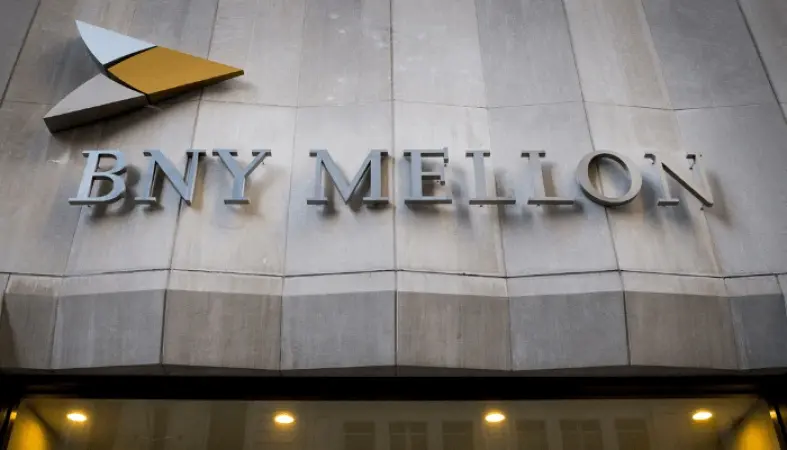Bank of New York Mellon Corp., in collaboration with Standard Bank Group Ltd., is launching global depositary notes backed by Nigerian sovereign debt denominated in naira.
A Bloomberg report said the initiative was designed to give international investors streamlined access to the elevated yields available in Nigeria, Africa’s most populous nation. The depositary notes will be eligible for settlement through major international clearing systems, Euroclear and Clearstream, enabling broader participation from global institutional investors.
This development represents a significant milestone in efforts to deepen foreign access to Nigeria’s local debt market. It is a financial instrument issued by a depository bank, representing ownership of a specific number of shares in a foreign company. It’s similar to a Global Depository Receipt (GDR) but typically refers to debt instruments rather than equity.
GDNs facilitate global investment, enhance capital flows, and support economic growth by connecting companies with international markets and investors. They are issued globally, often in major financial markets like London or New York, and are traded on international exchanges, allowing investors to gain exposure to foreign securities without directly owning them.
In the same vein, they are denominated in a widely accepted currency, usually U.S. dollars or euros, and are backed by underlying securities held by a custodian bank in the issuer’s home country.
It represents a claim on the underlying securities (often bonds or notes) of a foreign company or entity, held by a depository institution.
Thy are traded on international stock exchanges or overthe-counter (OTC) markets, making them accessible to global investors. Also, they facilitate cross-border investment by simplifying the process of investing in foreign markets, bypassing local regulations, currency conversion issues, and other barriers.
The instrument allows companies, particularly those in emerging markets, to raise capital from international investors. This influx of foreign investment can fund business expansion, infrastructure projects, or debt refinancing, driving economic growth.
By enabling foreign securities to be traded on global exchanges, GDNs increase market liquidity, which can stabilize financial markets and attract more investment. GDNs make it easier for global investors to invest in companies from different countries without navigating complex local regulations or currency risks.
This encourages foreign direct investment (FDI), which can boost local economies. Since GDNs are often denominated in stable currencies like USD or EUR, they can reduce currency risk for investors and provide issuers with access to hard currency, which is critical for economies with volatile local currencies.
It also promotes crossborder financial integration, allowing capital to flow more freely between developed and emerging markets, fostering global economic cooperation.
According to Bloomberg, Nigeria sold 182-day Treasury bills on June 4 at a yield of 18.5 per cent, while its 2033 benchmark bond was trading at a yield of 19.33 per cent as of Wednesday — among the highest returns in emerging markets.
As stated by the global head of depositary receipts at BNY Mellon, Chris Kearns, the programme is expected to help unlock investment potential across Africa and contribute to the development of capital markets on the continent.















